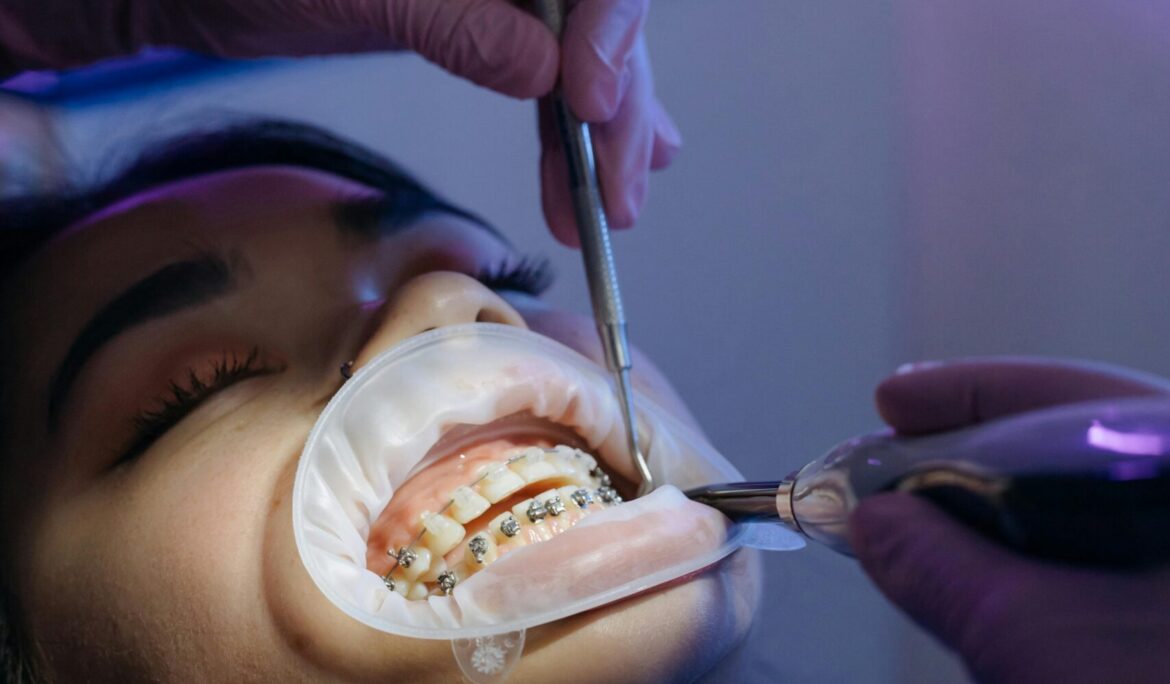Root canal treatment: A comprehensive guide

At Universal Smiles Dental we believe that your oral health is of paramount importance. Whether you’re dealing with a minor toothache or just want to know about different dental procedures. Understanding root canal treatment can empower you to take control of your oral health. If you’ve been searching for the top dentist in your area for a long time, then you are in the right place.
What is root canal treatment?
The purpose of root canal procedure is to treat infection or damage in the pulp of the tooth. Pulp is the innermost layer that contains nerves and blood vessels. If the pulp becomes infected typically because of deep decay, cracks or trauma it can be extremely painful. If left untreated it can be a source of pain and infection.
Root canal treatment has earned a reputation as something to be feared, often under the influence of myths and misconceptions. However this procedure is often the best way to relieve pain and preserve your natural tooth. In fact, many patients say that the pain they experienced due to an infected tooth was far worse than the treatment itself.
Take a moment to consider: are you having severe tooth pain while chewing? Are you experiencing sensitivity to hot and cold suddenly even after the source has been removed? Have you noticed swelling or redness around your gums? Has your tooth discolored? If you answered yes to any of these questions, it may be time to consult a professional. Since all of these symptoms are caused by a decaying tooth, it’s likely that you need a root canal. At Universal Smiles Dental, our expert team is here to help diagnose and address your concerns with compassion and care.
The pre-requisites
We know most people want this procedure to be completed quickly and to get on with their life. At our dental office we prioritize your comfort throughout the whole root canal procedure. We start with a thorough examination of your dental health. Our team of experienced dentists will review your medical history and perform a very detailed assessment. This would include X-rays to help determine the severity of the damage and to view the inside of your tooth. This means we can explain your diagnosis and discuss your options so you know what to expect in regard to your treatment plan. We will discuss various options for the affected tooth with advantages/ disadvantages and pros and cons of each option so that you can make an informed decision.
If we finally discover that a root canal is needed, then we will give you a local anesthetic to numb the area around the involved tooth. It takes away pain during the procedure. You may feel pressure, but you shouldn’t feel any discomfort. If you’re anxious about the procedure, please let us know and we’ll explain what other options we have to help you feel more relaxed.
How is root canal treatment carried out?
Once you’re comfortable, we will place a rubber sheet around the tooth on which we have to work. Then we will create a small opening in the crown of the tooth to access the pulp chamber. We will carefully remove the infected or damaged pulp tissue using specialized instruments. For one, it’s critical, getting rid of the source of pain and infection. After some antiseptic solutions are used to thoroughly disinfect the area, we’ll clean and shape the inside of the tooth with precision. It can be a long cleaning, as we do not want to leave any trace of infection. We will clean the interior and inspect it thoroughly to ensure it’s ready for sealing.
Once the pulp chamber has been cleaned and dried, we will restore the space with biocompatible material. This helps to seal the area to prevent bacteria from reentering. After your root canal, we will talk to you about what comes next in restoring your tooth. Most often a crown will be recommended to strengthen and restore its function. Along with protecting the treated tooth, it gives a natural look that matches the shape and color of your smile. We’ll take impressions of your teeth in order to make a brand new crown that’ll fit perfectly. If you need a temporary crown during this time, one will be placed to allow you to eat and speak comfortably while your permanent restoration is being made.
Finally we’ll schedule a follow-up appointment to see that you’re healing correctly and to place your permanent crown. You need this follow up to check up on your recovery and see if you have any complaints.
Post procedure care
Once you are done with your root canal, you may experience a certain level of discomfort. For this, your dentist will advise you over the counter painkillers. Minor pain, discomfort and swelling can also be relieved by using a cold compress. Apply a cold pack to the outside of your cheek near the affected area. Continue this for 10-15 minutes until you feel the pain has subsided to some degree. This helps numb the area and decreases inflammation.
However, in case you feel like the swelling or discomfort is not reducing, please contact us right away. We will book your consultation with our dentist at the earliest.
Frequently asked questions
Here are some of the most common queries you might have:
1. How much time will my recovery take?
The recovery time varies from individual to individual. Pain and sensitivity usually gets better within a few days. . Our competent team at Universal Smiles Dental will guide you thoroughly according to your needs.
2. Will the procedure hurt or will it hurt afterwards?
No, the procedure should not hurt given that your dentist has properly anesthetized the area for the procedure. Post procedure discomfort or soreness may be experienced. For this your dentist will advise you some over the counter painkillers. However at any moment if you feel like the pain is unbearable, you can contact us and we will book your appointment at the earliest. Patient care is our utmost priority at Universal Smiles Dental.
3. When can I start eating after root canal treatment?
This is often the most commonly asked question. You can return to normal eating and drinking but be careful while you are numb. We recommend eating on the other side and avoid anything very hot while you are numb. .
4. Should I come back for a follow up visit?
And last but not least, the question of whether a follow-up with a dentist after root canal is necessary. Yes, follow-up appointments are necessary because this allows confirmation that the site of procedure is healing properly. Furthermore any of your concerns will be cared for and you will be guided regarding the diet and properly cleaning of the site.
5. How can I maintain my oral health so as to avoid future dental decays?
In order to maintain a good oral health make sure you brush your teeth with a fluoride toothpaste and floss regularly. Book frequent visits to your nearby dental office for routine checkups. Avoid sugary food items, tobacco, smoking and alcohol.


